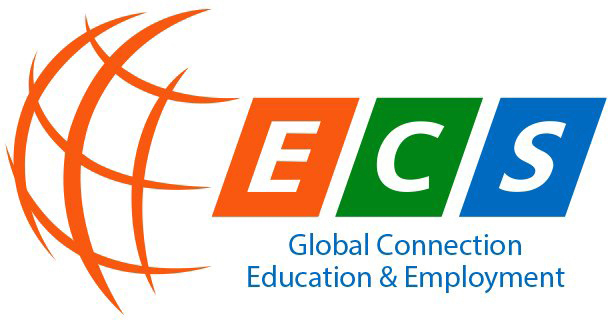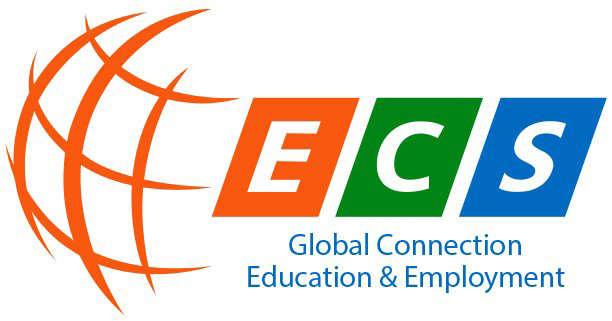Global Shifts Intensify Examining current affairs and the reshaping of international dynamics with t
- Global Shifts Intensify: Examining current affairs and the reshaping of international dynamics with today’s updates.
- Geopolitical Realignment and Emerging Power Dynamics
- The Rise of Regional Blocs
- The Evolving Role of International Organizations
- Economic Interdependence and Global Supply Chains
- The Impact of Disruptions on Global Trade
- Technological Innovation and the Future of Work
- The Climate Crisis and Sustainable Development
- Navigating a Complex and Interconnected World
Global Shifts Intensify: Examining current affairs and the reshaping of international dynamics with today’s updates.
The modern world is characterized by constant flux, a relentless churn of events that reshape the geopolitical landscape. Understanding these shifts is crucial for individuals, businesses, and governments alike. Recent developments, from economic recalibrations to evolving international alliances, demand careful analysis. This examination of current affairs provides insight into the underlying forces responsible for these dynamic changes; the information is quite important, considering the constant stream of news that permeates our daily lives. A thorough understanding requires looking beyond headlines and into the complex interplay of various factors influencing the global order.
The term ‘current affairs’ encapsulates a vast range of subjects, encompassing political, economic, social, and technological trends. These areas are interconnected, creating a complex web of cause and effect. Effective navigation of this complexity requires access to reliable information and the ability to critically evaluate different perspectives. The speed at which these shifts unfold necessitates continuous learning and adaptation. It is a period defined by both challenges and opportunities, demanding thoughtful responses and strategic planning.
Geopolitical Realignment and Emerging Power Dynamics
The distribution of power across the globe is undergoing a significant transformation. Traditionally dominant powers are facing challenges from rising actors, leading to a more multipolar world. This realignment is evident in various regions, from the Indo-Pacific to Eastern Europe, where competing interests and strategic maneuvering are commonplace. Understanding these shifts is crucial for predicting future conflicts and opportunities. One notable aspect is the increasing assertiveness of certain nations in pursuing their own geopolitical agendas.
The Rise of Regional Blocs
A prominent feature of the current geopolitical landscape is the proliferation of regional blocs. These groupings of nations, often driven by economic or security concerns, are reshaping the dynamics of international relations. Examples include the Association of Southeast Asian Nations (ASEAN), the African Union, and various trade agreements like the Regional Comprehensive Economic Partnership (RCEP). These blocs allow countries to pool their resources and influence, increasing their bargaining power on the global stage. They also create new avenues for cooperation and integration, fostering economic growth and stability.
However, the rise of regional blocs also poses challenges. They can exacerbate existing tensions between nations and create new divisions. The formation of exclusive blocs can also lead to protectionism and hinder global trade. Therefore, it is essential to ensure that these blocs are inclusive and adhere to the principles of multilateralism; the effects on international trade are somewhat unpredictable, according to some observers.
Successfully navigating this complex scenario requires proactive diplomacy and a commitment to international cooperation. Finding common ground and fostering mutual understanding are crucial for preventing conflicts and promoting stability. The future global order will be shaped by the ability of nations to work together, despite their differences.
The Evolving Role of International Organizations
International organizations, such as the United Nations, the World Trade Organization, and the International Monetary Fund, play a vital role in governing the global order. However, their effectiveness is increasingly being questioned in the face of new challenges. These organizations are often hampered by bureaucratic inefficiencies, political gridlock, and a lack of adequate funding. Some argue that they are no longer fit for purpose and require fundamental reform. Others maintain that they remain essential for addressing global problems like climate change, poverty, and pandemics.
Despite their shortcomings, international organizations provide a valuable forum for dialogue and cooperation. They facilitate the negotiation of treaties, the provision of humanitarian aid, and the deployment of peacekeeping forces. Strengthening these organizations requires a renewed commitment from member states and a willingness to address their structural weaknesses. Enhancing transparency, accountability, and inclusivity are critical steps in this process; it is a slow process, often facing resistance from entrenched interests.
To remain relevant in the 21st century, international organizations must adapt to the changing geopolitical landscape. This includes embracing new technologies, fostering greater collaboration with civil society, and promoting innovative approaches to problem-solving. A more agile and responsive global governance system is essential for addressing the complex challenges facing humanity.
Economic Interdependence and Global Supply Chains
The global economy is characterized by a high degree of interdependence, with countries relying on each other for trade, investment, and technology. This interconnectedness has brought significant benefits, including increased economic growth, lower prices, and greater access to goods and services. However, it has also created vulnerabilities, as demonstrated by the disruptions to global supply chains caused by recent events. The resilience of these supply chains is now a major concern for businesses and governments.
The Impact of Disruptions on Global Trade
Recent events, such as the COVID-19 pandemic and geopolitical conflicts, have exposed the fragility of global supply chains. Disruptions to transportation networks, factory closures, and shortages of raw materials have led to significant delays and price increases. These disruptions have had a cascading effect on businesses and consumers worldwide. Companies are now re-evaluating their supply chain strategies, seeking to diversify their sourcing and build greater resilience. This is leading to a shift away from reliance on single suppliers and towards more regionalized supply chains. The potential for increased tariffs and trade barriers adds another layer of complexity to the situation; this shift in strategy comes at a cost, requiring substantial investment.
The impact of disruptions on global trade extends beyond immediate economic consequences. They also have implications for national security, as access to critical resources and goods can be compromised. Governments are increasingly recognizing the need to strengthen their domestic supply chains and reduce their dependence on foreign sources. This includes investing in domestic manufacturing, diversifying sourcing, and building strategic reserves of essential goods. Ensuring the security and reliability of supply chains is now a top priority for many countries.
However, efforts to strengthen domestic supply chains must be balanced against the benefits of free trade and global interconnectedness. Protectionism can lead to higher prices and reduced consumer choice. The challenge is to find a way to enhance resilience without undermining the efficiency and competitiveness of the global economy. Collaboration between governments, businesses, and international organizations is crucial for addressing this challenge.
Technological Innovation and the Future of Work
Technological innovation is rapidly transforming the global economy, creating new opportunities and challenges. Automation, artificial intelligence, and other emerging technologies are disrupting traditional industries and reshaping the nature of work. While these technologies have the potential to boost productivity and economic growth, they also raise concerns about job displacement and income inequality. Preparing for the future of work requires investing in education and retraining programs, as well as exploring new models of social safety nets.
| Automation | Potential job displacement in repetitive tasks | Critical thinking, problem-solving, creativity |
| Artificial Intelligence | Job creation in AI development and maintenance; potential displacement in data entry and analysis | Data science, machine learning, programming |
| Remote Work Technologies | Increased flexibility and access to global talent pools | Digital literacy, communication, self-discipline |
The rise of the gig economy and the increasing prevalence of remote work are also transforming the labor market. These trends offer greater flexibility for workers but can also lead to precarity and a lack of benefits. Ensuring that workers have access to adequate protections and social safety nets is essential for mitigating the negative consequences of these changes. Adapting to the future of work requires a proactive and collaborative approach, involving governments, businesses, and educational institutions; some argue even a universal basic income.
Furthermore, technological innovation can exacerbate existing inequalities. Access to technology and the skills needed to use it are often unevenly distributed, creating a digital divide. Bridging this divide requires investing in digital infrastructure, promoting digital literacy, and ensuring that everyone has access to affordable internet access. Failing to address these inequalities could lead to a more fragmented and unequal society.
The Climate Crisis and Sustainable Development
The climate crisis is one of the most pressing challenges facing humanity. Rising temperatures, extreme weather events, and sea-level rise are already having devastating consequences around the world. Addressing this crisis requires urgent action to reduce greenhouse gas emissions and transition to a sustainable economy. This includes investing in renewable energy sources, improving energy efficiency, and promoting sustainable land use practices. Moreover, international cooperation is essential for achieving significant progress; a global problem necessitates global solutions.
- Investing in renewable energy technologies
- Implementing carbon pricing mechanisms
- Promoting sustainable transportation systems
- Enhancing energy efficiency standards
Sustainable development goes beyond simply addressing the climate crisis. It encompasses a broader range of goals, including poverty eradication, reducing inequality, and protecting biodiversity. Achieving these goals requires a holistic approach that integrates economic, social, and environmental considerations. This includes promoting sustainable agriculture, fostering responsible consumption and production patterns, and investing in education and healthcare.
However, transitioning to a sustainable economy requires significant investments and behavioral changes. There will be winners and losers, and it is essential to ensure that the costs and benefits are distributed fairly. Building a more sustainable future requires a long-term vision and a commitment to intergenerational equity; future generations should not be burdened by the choices made today.
Navigating a Complex and Interconnected World
The confluence of geopolitical shifts, economic interdependence, and the climate crisis presents a complex and interconnected web of challenges. Effectively navigating this world requires a nuanced understanding of these forces and a willingness to embrace collaboration and innovation. The ability to adapt and respond to change will be paramount, as the pace of disruption continues to accelerate. It’s about finding common ground amid divergence.
- Promote multilateralism and international cooperation
- Invest in education and innovation
- Strengthen domestic resilience and supply chains
- Embrace sustainable development and address the climate crisis
The future global order will be shaped by the choices made today. Prioritizing long-term sustainability, inclusivity, and peace is crucial for creating a more prosperous and equitable world for all. A proactive approach, fostering dialogue, and building trust among nations are essential steps toward achieving this vision.

